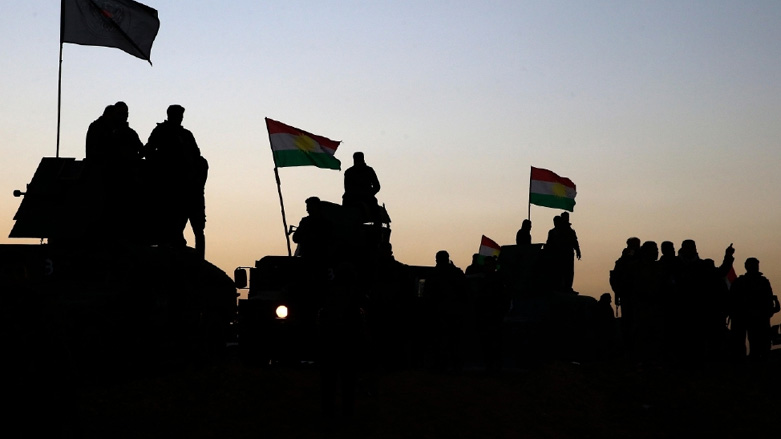Kurdistan Peshmerga commander calls for more armed support in fight against ISIS

ERBIL (Kurdistan 24) – A senior Kurdistan Region Peshmerga commander on Thursday called for more armed support to better equip Kurdish forces countering an ongoing Islamic State insurgency.
Iraq declared victory over the Islamic State in late 2017. Since then, however, the organization’s sleeper cells have continued to carry out sporadic attacks different areas of the country, especially those contested between the central government and Kurdistan Regional Government (KRG).
“It is true that Da’esh has been defeated, become weaker and lost cities,” Peshmerga commander Sheikh Jaafar Sheikh Mustafa stated during a press conference held in Erbil. Da’esh is the Arabic acronym for the Islamic State of Iraq and the Levant.
“However,” he added, the group “still exists as a force” operating in the area and if the Peshmerga are to counter it, they require “more weapons.”
The press conference followed a ceremony celebrating the completion of the “Peshmerga Hospital,” a military healthcare facility built in Erbil. The event was attended by Ministry of Peshmerga officials and German members of the anti-ISIS coalition.
The Peshmerga, Kurdish for “those who face death,” are the official armed forces of the Kurdistan Region and have played a major role in the war against the Islamic State.
A member of the German military announced the opening of the healthcare center, “dedicated to wounded Peshmerga fighters.”
Mustafa added that “the opening of the hospital is a positive step” for Peshmerga forces. Fighters with severe injuries have had to travel abroad to receive care, with some still residing in European countries, among them Belgium, for continuous treatment.
According to the Iraqi Constitution, the Peshmerga are part of the national defense apparatus, but they have often been neglected and marginalized by the federal government. Recent steps by the new cabinet, however, indicate the two sides are attempting to enhance cooperation regarding the security of the country as a whole.
Editing by Nadia Riva
